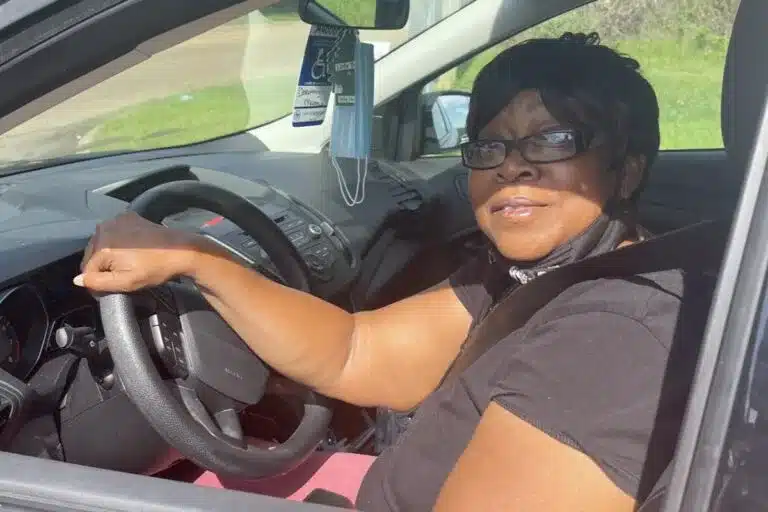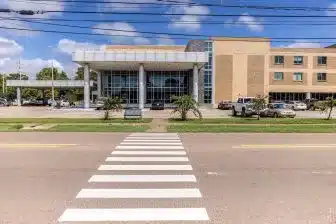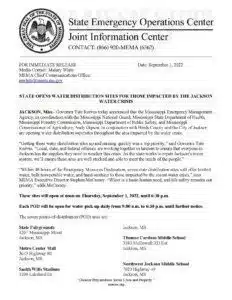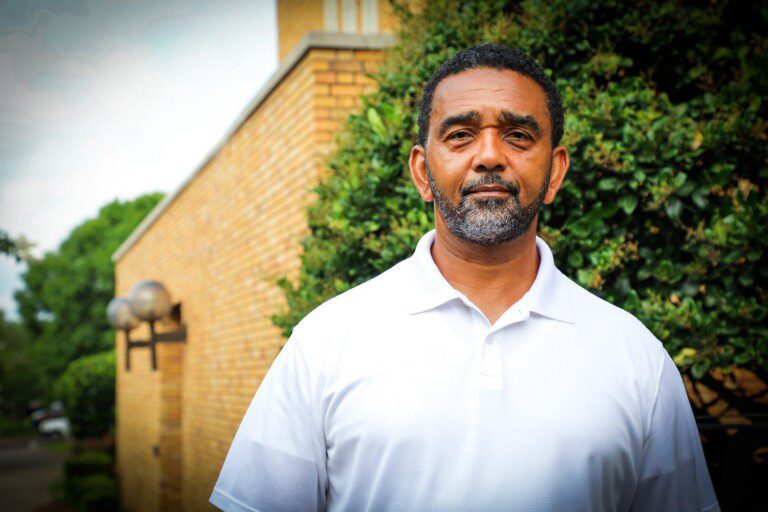Jackson resident Dorothy Mannie described her experience of obtaining bottled water that the Mississippi National Guard distributed at Cardozo Middle School in Jackson, Miss., on Friday, Sept. 2, as a pleasant one. The capital city continues to reel from the consequences of the operational disruption that occurred at the O.B. Curtis Water Treatment Center on Monday, with many residents searching for means of acquiring clean water for home use.
“The experience was wonderful,” Mannie told the Mississippi Free Press as she sat in her vehicle after receiving the bottled water. “I just drove in, they loaded up for me the way I wanted it—I asked them to put it in the truck, and they put it in there for me—and I thanked them.”
“They said, ‘Thank you, ma’am; you have a blessed day’—that’s courtesy and manners,” she added. “They’ve got good manners,; they are really respectful, and that’s a good thing. Ain’t nobody got no attitude.”
After declaring a state of emergency on Tuesday, Aug. 30, Gov. Tate Reeves announced Thursday that six places in Jackson and one in Byram would give out potable and non-potable water: the State Fairgrounds (1200 Mississippi St.), the Metrocenter Mall (3645 Highway 80 W.), Smith Wills Stadium (1200 Lakeland Drive), Thomas Cardozo Middle School (3180 McDowell Road Extension), Northwest Jackson Middle School (7020 Highway 49 N.), Hinds Community College (3925 Sunset Drive), all in Jackson, as well as Davis Road Park (2515 Davis Rd.Road, Byram).
“These sites will offer bottled water, bulk non-potable water and hand sanitizer.; Tthey will be open from 9 a.m. to 6:30 p.m. each day until further notice,” Reeves said at a press conference on Thursday. “We have been working in coordination with the City and their distribution plans, primarily at fire stations, over the last 48 hours.”
The governor
Read original article by clicking here.





















